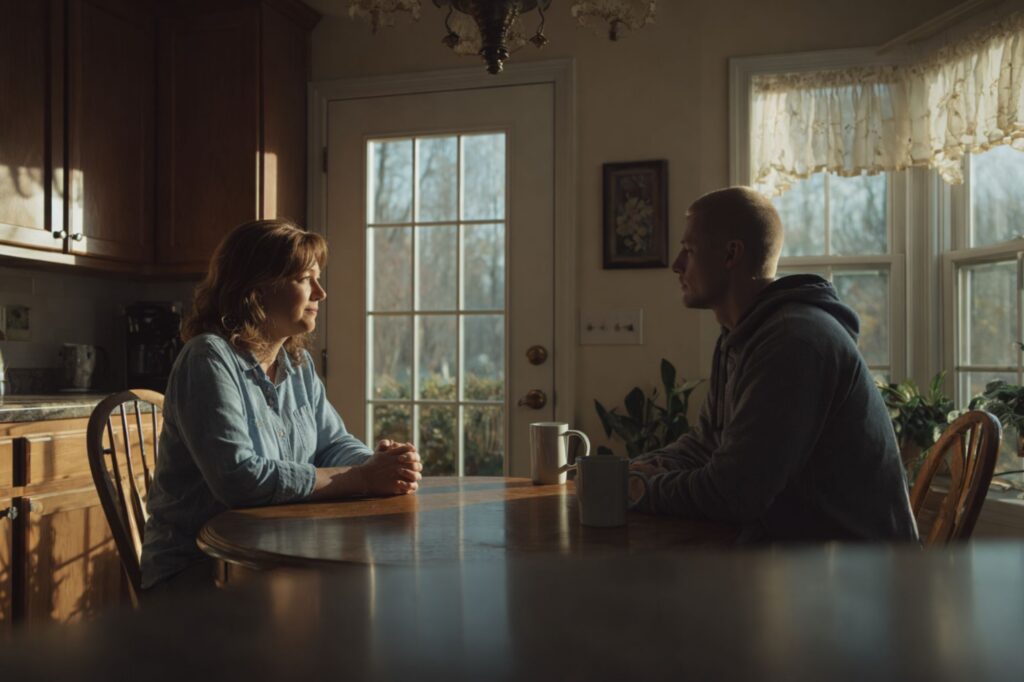Home » Addiction Treatment » Outpatient Addiction Treatment, NH | Heartfelt Recovery
Outpatient Substance Abuse Treatment in New Hampshire
At Heartfelt Recovery Centers in Hudson, New Hampshire, our Outpatient Program (OP) provides flexible, evidence-based addiction treatment for individuals who want to continue recovery while maintaining daily responsibilities. Ideal for those transitioning from higher levels of care such as PHP or IOP, our outpatient rehab offers therapy, counseling, and holistic support designed to fit your schedule. Serving Hudson, Nashua, Manchester, and surrounding southern NH communities, we help clients strengthen their recovery skills, manage co-occurring disorders, and build a balanced, substance-free life—without stepping away from their home or work commitments.

Personalized Outpatient Alcohol and Drug Rehab
Outpatient rehab offers flexible treatment for addiction and mental health while allowing you to live at home. It’s a great option for those who need support without full-time care. Treatment includes therapy, counseling, and workshops. These sessions help address addiction’s root causes and build coping skills.
With a schedule that fits your life, outpatient rehab helps you balance recovery with work, school, or family. It’s especially useful for those stepping down from inpatient care or needing less intensive support.

What to Expect From Outpatient Addiction Treatment
Outpatient treatment offers flexible therapy sessions designed to fit your schedule. You’ll build coping skills, gain support, and work toward recovery while balancing daily life. Sessions occur a few times a week, including evening options. Treatment includes individual and group therapy, plus workshops on addiction and recovery skills.
At Heartfelt Recovery Centers, our OP is ideal for those with mild to moderate addiction or co-occurring disorders. We provide structured support with the flexibility you need.
Why Choose the Heartfelt Recovery Outpatient Program?
Flexibility
Heartfelt offers flexible schedules, allowing you to balance treatment with other responsibilities.
Intensive Care
Our programs provide structured, comprehensive care to help you overcome addiction and mental health challenges.
Supportive Community
At Heartfelt, you’ll find an encouraging community that fosters connection and accountability.
Outpatient Addiction Therapy
Outpatient treatment includes a range of therapies to support your recovery. These evidence-based and holistic approaches build a strong foundation for lasting change.
Cognitive-Behavioral Therapy (CBT)
CBT helps people recognize and change negative thoughts, improving emotional control and coping skills.
Dialectical Behavior Therapy (DBT)
DBT combines CBT with mindfulness. It teaches emotional control, stress management, and healthy relationships.
Motivational Interviewing (MI)
MI helps individuals build motivation for recovery by exploring doubts and boosting confidence.
Relapse Prevention
This therapy teaches people to recognize triggers, manage cravings, and stay on track in recovery.
Family Therapy
Family therapy improves communication, strengthens relationships, and creates a supportive recovery environment.
Group Therapy
Group sessions allow people to share experiences, gain support, and learn from others in recovery.
One-on-One Counseling
Individual counseling provides personalized support. It helps clients work through challenges and set recovery goals.
Holistic Therapies
These therapies, like yoga, meditation, and art, support overall wellness for the mind and body.
Skill-Building Therapy
This therapy teaches practical skills to aid long-term recovery. This includes communication, problem-solving, and emotional control.
Dual-Diagnosis
We treat both addiction and mental health conditions together for a more complete recovery.
Outpatient vs. IOP and PHP Programs
OP is less intensive than Partial Hospitalization Programs (PHP) and Intensive Outpatient Programs (IOP). Each suits different needs based on addiction severity, home life, and daily responsibilities.
PHP is the most intensive, requiring full-day sessions several times a week. IOP is a step-down, with multiple therapy sessions each week but more flexibility than PHP. OP is the least intensive, with fewer hours, making it easier to balance with daily life.
Many people transition to OP after PHP or IOP. It’s a great option for those who need support while managing work, school, or family. Our OP program may be right for you if:
- You have mild to moderate addiction or co-occurring disorders
- Your living environment is stable and supportive
- You can maintain daily responsibilities like work, school, or family
- You prefer part-time treatment with personalized support
- You’re transitioning from higher levels of care
- You want a community-focused recovery environment

Experience the Heartfelt Recovery Difference
Outpatient treatment gives you the support you need while allowing you to stay connected to your daily life. At Heartfelt Recovery Centers, we provide compassionate, evidence-based care tailored to your unique journey.
Whether you’re transitioning from a higher level of care or seeking structured support, we can help. Our outpatient program helps you build lasting recovery skills. Take the next step toward a healthier future—contact us today to learn how we can support you.
FAQs About Outpatient Programs
What is an Outpatient Program (OP)?
An outpatient program provides treatment for substance use or mental health conditions. It allows clients to live at home and attend scheduled therapy or counseling sessions.
How does an outpatient program work?
Outpatient care involves individual therapy, group counseling, and educational workshops. Clients can continue with their daily responsibilities while attending treatment.
Who is a good candidate for an outpatient program?
Outpatient programs are ideal for individuals who have supportive home environments. It’s also ideal for those who are transitioning from a higher level of care (like residential treatment) and have mild to moderate symptoms.
How long does an outpatient program last?
The duration of outpatient treatment varies depending on unique needs and goals. Some programs may last a few weeks, while others extend over several months.
What makes Heartfelt Recovery Centers a trusted outpatient rehab in New Hampshire?
Heartfelt Recovery Centers in Hudson, NH, is a leading New Hampshire substance abuse treatment center offering compassionate, evidence-based outpatient rehab programs. We serve clients from across the state, providing flexible care that helps individuals maintain work, school, and family commitments while receiving the structure and support they need to recover.
What does outpatient drug rehab in New Hampshire include?
Our outpatient drug rehab in New Hampshire includes a variety of addiction treatment services, such as individual counseling, group therapy, relapse prevention, and family support. Clients also benefit from holistic care—like mindfulness, yoga, and stress management—to promote long-term emotional and physical wellness. This approach helps individuals manage triggers and build lasting recovery habits.
Who should consider outpatient addiction treatment programs in New Hampshire?
Outpatient addiction treatment programs in New Hampshire are best suited for individuals with mild to moderate substance use disorders or those transitioning from a higher level of care, such as inpatient or partial hospitalization programs. Heartfelt Recovery Centers’ outpatient program is ideal for clients with a stable home environment who want structured treatment while continuing their daily routines.
How long does outpatient rehab last in New Hampshire?
The length of outpatient rehab in New Hampshire varies based on each person’s recovery needs, progress, and treatment goals. At Heartfelt Recovery Centers, outpatient care typically lasts from several weeks to a few months, with flexible scheduling that can include evening or daytime sessions to accommodate your lifestyle.
Where can I find a local outpatient substance abuse treatment center near me?
If you’re looking for an outpatient substance abuse treatment center near you, Heartfelt Recovery Centers in Hudson, New Hampshire, offers accessible, high-quality care for individuals across the southern New Hampshire region, including Manchester, Nashua, and surrounding communities. Our local outpatient program provides the tools, therapy, and guidance needed to overcome addiction and sustain lifelong recovery.
View Our Resources
Written by Courtney Addiction rarely affects only one person. It touches parents, partners, siblings, and children in deeply personal ways. Fear,...
Written by Courtney How Social Connection Shapes the Recovery Journey Recovery is not only about stopping substance use. It is about...
Written by Courtney Addiction affects more than one person. It reshapes family relationships, communication patterns, and emotional safety. Even when a...





